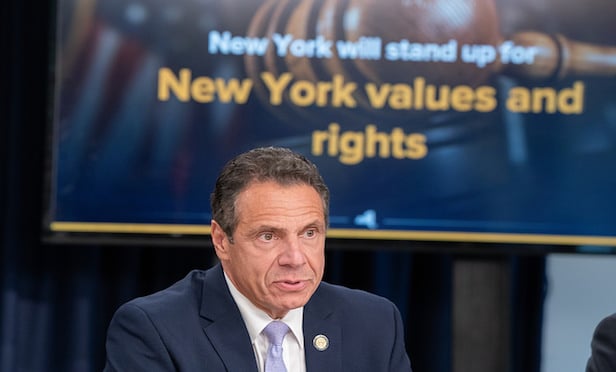WASHINGTON, DC—Industry lobbying on Capitol Hill is intensifying for Congress to renew the Terrorism Risk Insurance Act before year's end when it expires. Or to be more precise, before Dec. 11, when Congress adjourns for the year.
The hold up is not merely procedural or a matter of Congress with too much to do and not enough time to do it; there is genuine disagreement between the House of Representatives and the Senate over which version of their respective bills should take precedence. As The Real Estate Roundtable explained in its analysis of the situation: "The House TRIA bill has been stalled amid intra-party GOP disagreement on how extensively the existing program should be reformed.
"[House Financial Services Committee Chair Jeb] Hensarling (R-TX) and other conservatives reportedly would like to further reduce taxpayer exposure under TRIA (while expanding insurance industry "skin in the game")."
The Real Estate Roundtable noted that last week Sen. Charles Schumer (D-NY) and Hensarling met to begin discussing how to move toward compromise between the seven-year TRIA bill that passed the Senate in July, and the five-year extension that cleared Hensarling's committee in June. "Their effort to re-open bipartisan, bicameral dialogue on this urgent issue was a welcome sign for TRIA backers."
Hensarling, however, has made clear his distaste for the measure—a feeling shared by other House Republications. The Hill publication reported that one reason why the bill never made it to the House floor was because it lacked sufficient support by House Republications.
One option floated by House Speaker John Boehner (R-Ohio) is a short-term reauthorization.
While that would be preferable to Congress failing to renew TRIA at all, the commercial real estate and insurance industry will likely not want the uncertainty that a short-term measure would offer.
That said, the industry have been surprisingly sanguine about the midnight hour timing.
"Currently nobody is panicking and borrowers and lenders are generally proceeding on the assumption that TRIA will be renewed, Lydia Stefanowicz, partner with Edwards Wildman Palmer LLP tells GlobeSt.com.
But if it doesn't the result won't be pretty.
"Obviously, loan documentation has for years included provisions for what happens if it is not," she continues. "Under that scenario, the costs for terrorism insurance could double or triple before a borrower could argue that the coverage is not available at commercially reasonable rates."
Tenants in these buildings, at least those with net terms, would find themselves on the receiving end of such costs, Stefanowicz adds.
"It's still a pretty fragile leasing market except for some hot urban areas or top-of-the-market projects, so either way this additional cost could act as another obstacle to increasing leasing activity at healthy rental rates."
But make no mistake – the commercial real estate and insurance industries have their eye on the calendar, said Alan Lyons, counsel at Herrick, Feinstein LLP who concentrates his practice on insurance and reinsurance matters. "As the Dec. 31, 2014, expiration date looms closer without definitive action from Congress, a certain level of frustration is developing in the insurance industry due to the lack of certainty as to whether TRIA will be renewed and, if so, on what terms," he tells GlobeSt.com.
© Touchpoint Markets, All Rights Reserved. Request academic re-use from www.copyright.com. All other uses, submit a request to [email protected]. For more inforrmation visit Asset & Logo Licensing.






